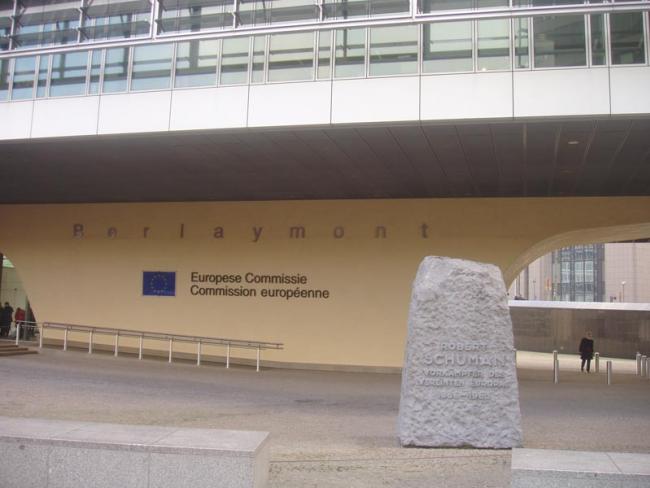
Headquarters of the European Commission in Brussels. Photo Workers.
Britain is taking to the law to force the EU to admit it to the Horizon research programme…
The government has finally moved to end the impasse over Britain’s membership of the European Union’s research programmes. The EU has been blocking access in response to disagreement with Britain over the Northern Ireland Protocol, which is not related to research.
The move entails formally invoking consultation under the terms of the Brexit agreement. That gives the EU ten days to respond, and 30 days to start talks. If no agreement is reached, the matter can go to international arbitration.
The EU has been blocking British membership of its multi-billion-euro Horizon research programme as well as to Copernicus, its Earth observation platform, and nuclear research as part of Euratom, as well as space surveillance and tracking.
In June, 115 British research groups lost prestigious European Research Council (ERC) grants after they refused to relocate to the EU. The government replied on 22 July with its “Plan B”, setting out how it would fund research in the event that no agreement is reached with the EU.
A week before the publication of “Plan B”, the ERC released analysis showing that over the period from 2014 to 2021 Britain had won more of its grants than any other country – a demonstration of the strength of British science and of how much EU universities stand to lose from being cut off from cooperation with Britain.
The EU’s approach has extended to Switzerland as well, after the Swiss decided not to accept the EU’s unlimited free movement and the jurisdiction of the European Court. Between them, Britain and Switzerland accounted for fully 25 per cent of grants in the ERC analysis.
British strength
Researchers in the EU stand to lose the most, given the pre-eminence of British science. Switzerland, too, is a scientific powerhouse. Judged by research quality, the top 30 in the latest Times World University Rankings includes one Swiss and five British universities (with Oxford and Cambridge at 1 and =2, respectively) – and no EU-based institution.
‘Researchers in the EU stand to lose the most…’
Britain’s decision to go to law was immediately welcomed by the elite Russell Group of universities. Its chief executive, Tim Bradshaw, said, “We hope the decision to enter formal consultations will help resolve the current impasse and unlock the enormous benefits that UK association to Horizon Europe and other key programmes will bring to both sides.”
Russell Group universities won the lion’s share of ERC grants going to Britain, with research income of £1.8 billion under Horizon 2020. On 21 July Bradshaw wrote to EU Commission president Ursula von der Leyen that not confirming British membership of Horizon was “a mistake”.
European universities agree, including the Russell Group’s EU counterpart, the League of European Research Universities. “The obsessive stubbornness of [Commission President] Ursula von der Leyen has really caused this action,” its secretary-general told Politico. “So, well done U.K. government, whoever that may be presently, if they go ahead with this. This politicization of research policy really has to end, and fast.”
That message has not got through to the Labour Party. Shadow foreign secretary David Lammy criticised the move to go to law, saying that instead the next prime minister should “sit down with all parties to ease the tensions” – which is odd, given that sitting down with Britain is precisely what the EU is refusing to do.
